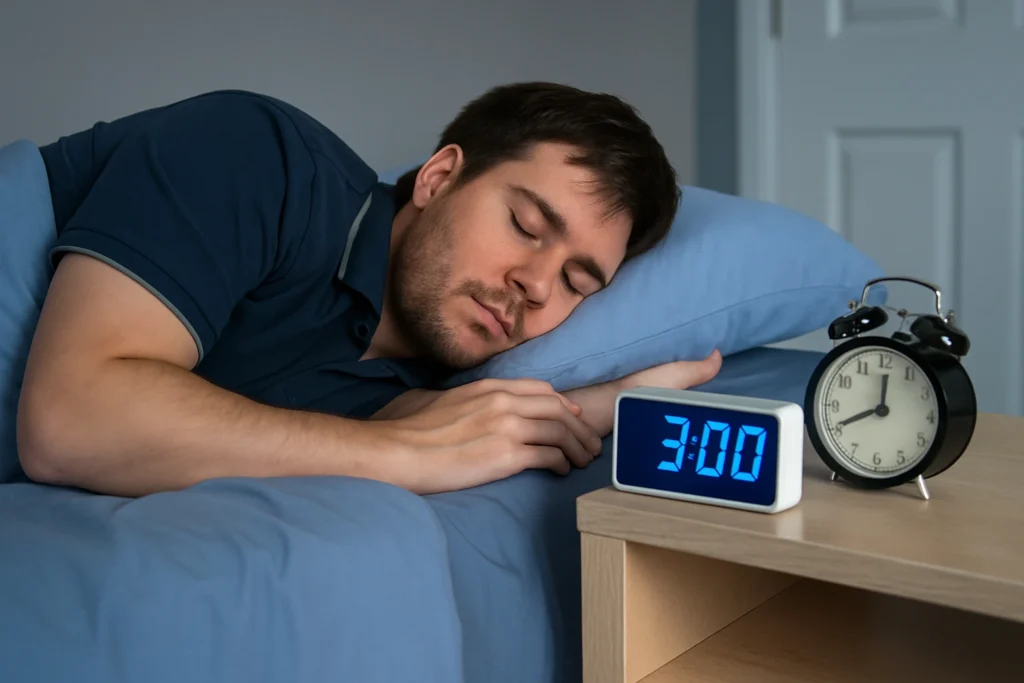Understanding Shift Work Sleep Disorder
Shift work sleep disorder is a condition that affects people whose work schedules fall outside the traditional 9‑to‑5 hours. It’s most common among those who work evening shifts, night shifts, or rotating schedules. The disruption to the body’s natural sleep‑wake cycle—also known as the circadian rhythm—can lead to chronic sleep difficulties and excessive daytime sleepiness.
This condition doesn’t just affect energy levels; it can also impact long‑term work schedule and sleep health, mood, and overall quality of life.
Why Circadian Rhythm Disruption Happens
Our bodies are designed to follow a roughly 24‑hour sleep‑wake pattern controlled by the circadian rhythm. Light, darkness, and consistent daily routines reinforce this internal clock.
For people working nights or irregular schedules, circadian rhythm disruption occurs because work and sleep times are misaligned with the body’s natural timing. This makes falling asleep, staying asleep, and feeling rested more difficult.
Symptoms of Shift Work Sleep Disorder
People with shift work sleep disorder may experience:
- Difficulty falling asleep when they need to rest
- Trouble staying asleep or getting restorative rest
- Excessive tiredness during work hours
- Irritability, poor concentration, and decreased performance
- Long‑term effects on physical and mental health
Addressing these issues requires tailored strategies and sometimes professional support.
Night Shift Sleep Tips for Better Rest
Adopting night shift sleep tips can make a big difference in managing irregular sleep schedules:
- Create a dark, quiet environment – Use blackout curtains and white noise machines to block light and sound during the day.
- Maintain a consistent schedule – Go to bed and wake up at the same time each day, even on days off when possible.
- Avoid caffeine close to bedtime – Limit stimulants several hours before sleep to improve rest quality.
- Use strategic naps – Short naps before or during breaks can improve alertness.
- Expose yourself to light during work – Bright light helps keep you alert during night shifts.
Rotating Shifts Sleep Help
For those working alternating or rotating schedules, rotating shifts sleep help involves careful planning:
- Gradually adjust your sleep schedule before a shift change when possible.
- Keep sleep routines consistent, even when shifts rotate.
- Use sunglasses when leaving work in the morning to reduce light exposure and signal your body that it’s time to wind down.
These techniques can help minimize the negative effects of frequent schedule changes.

Managing Work Schedule and Sleep Health
Maintaining work schedule and sleep health requires commitment and sometimes professional evaluation. Untreated shift work sleep disorder can lead to higher risks of heart disease, obesity, diabetes, and mood disorders.
Sleep clinics can assess your situation, provide tailored strategies, and recommend treatments that may improve sleep quality and daytime functioning.
Final Thoughts on Shift Work Sleep Disorder
Managing shift work sleep disorder is possible with the right approach. By implementing night shift sleep tips, addressing circadian rhythm disruption, and seeking rotating shifts sleep help when needed, you can protect your health and maintain better sleep despite irregular schedules.
FAQ About Shift Work Sleep Disorder
1. What is shift work sleep disorder?
It’s a condition caused by irregular schedules that disrupt the body’s natural circadian rhythm, leading to insomnia and excessive daytime sleepiness.
2. What are common symptoms?
Trouble sleeping, fatigue, irritability, reduced concentration, and long‑term health issues are common.
3. What night shift sleep tips can help?
Maintain a consistent sleep schedule, create a dark and quiet sleep environment, limit caffeine, and use strategic naps.
4. How can rotating shifts help?
Gradual schedule adjustments, consistent sleep routines, and light management techniques can reduce the strain of rotating shifts.
5. Can a sleep clinic help with work schedule and sleep health?
Yes. A sleep clinic can provide assessments, targeted treatments, and personalized strategies for managing shift work sleep disorder.





